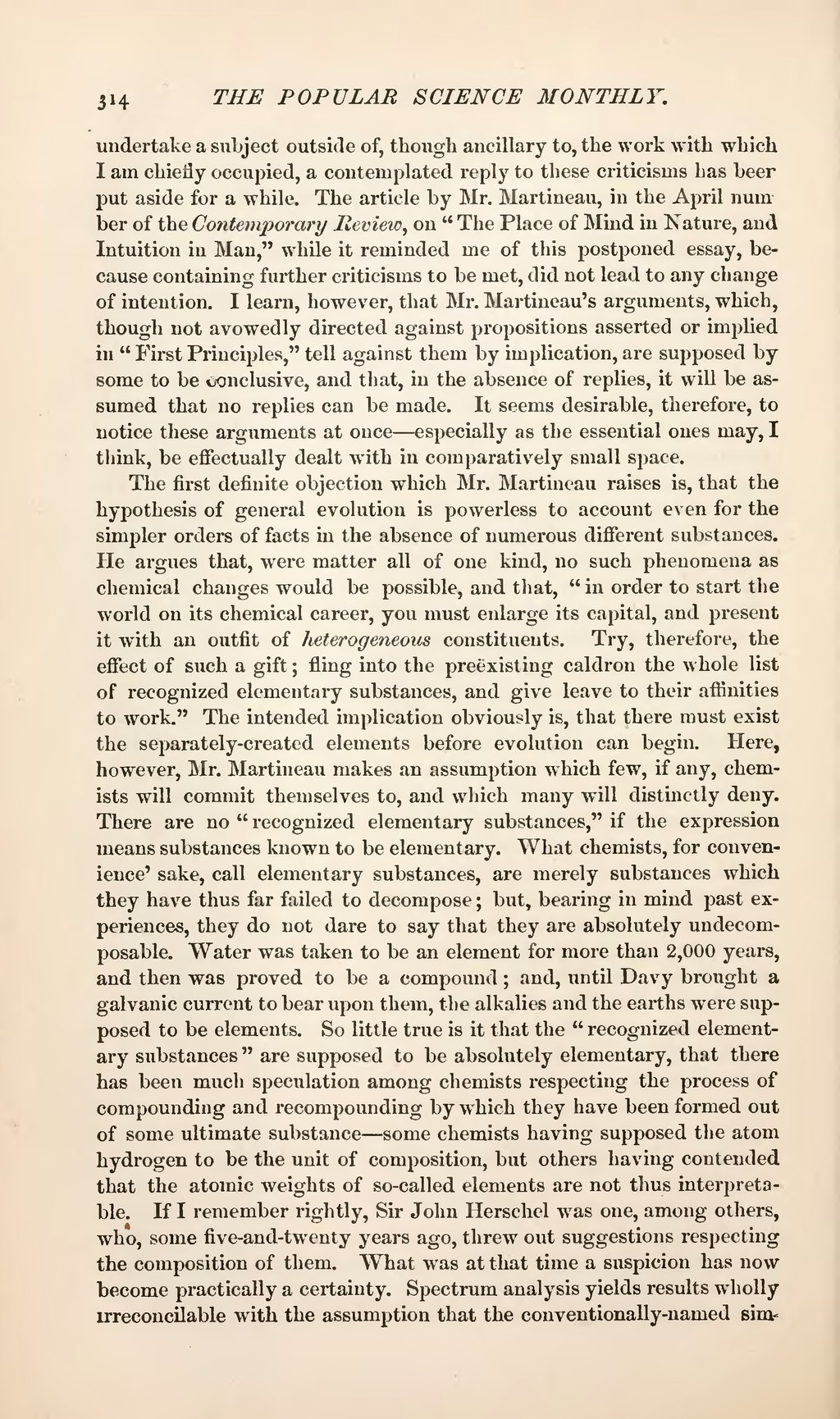undertake a subject outside of, though ancillary to, the work with which I am chiefly occupied, a contemplated reply to these criticisms has beer put aside for a while. The article by Mr. Martineau, in the April number of the Contemporary Review, on "The Place of Mind in Nature, and Intuition in Man," while it reminded me of this postponed essay, because containing further criticisms to be met, did not lead to any change of intention. I learn, however, that Mr. Martineau's arguments, which, though not avowedly directed against propositions asserted or implied in "First Principles," tell against them by implication, are supposed by some to be conclusive, and that, in the absence of replies, it will be assumed that no replies can be made. It seems desirable, therefore, to notice these arguments at once—especially as the essential ones may, I think, be effectually dealt with in comparatively small space.
The first definite objection which Mr. Martineau raises is, that the hypothesis of general evolution is powerless to account even for the simpler orders of facts in the absence of numerous different substances. He argues that, were matter all of one kind, no such phenomena as chemical changes would be possible, and that, "in order to start the world on its chemical career, you must enlarge its capital, and present it with an outfit of heterogeneous constituents. Try, therefore, the effect of such a gift; fling into the preexisting caldron the whole list of recognized elementary substances, and give leave to their affinities to work." The intended implication obviously is, that there must exist the separately-created elements before evolution can begin. Here, however, Mr. Martineau makes an assumption which few, if any, chemists will commit themselves to, and which many will distinctly deny. There are no "recognized elementary substances," if the expression means substances known to be elementary. What chemists, for convenience' sake, call elementary substances, are merely substances which they have thus far failed to decompose; but, bearing in mind past experiences, they do not dare to say that they are absolutely undecomposable. Water was taken to be an element for more than 2,000 years, and then was proved to be a compound; and, until Davy brought a galvanic current to bear upon them, the alkalies and the earths were supposed to be elements. So little true is it that the "recognized elementary substances" are supposed to be absolutely elementary, that there has been much speculation among chemists respecting the process of compounding and recompounding by which they have been formed out of some ultimate substance—some chemists having supposed the atom hydrogen to be the unit of composition, but others having contended that the atomic weights of so-called elements are not thus interpretable. If I remember rightly, Sir John Herschel was one, among others, who, some five-and-twenty years ago, threw out suggestions respecting the composition of them. What was at that time a suspicion has now become practically a certainty. Spectrum analysis yields results wholly irreconcilable with the assumption that the conventionally-named sim-
